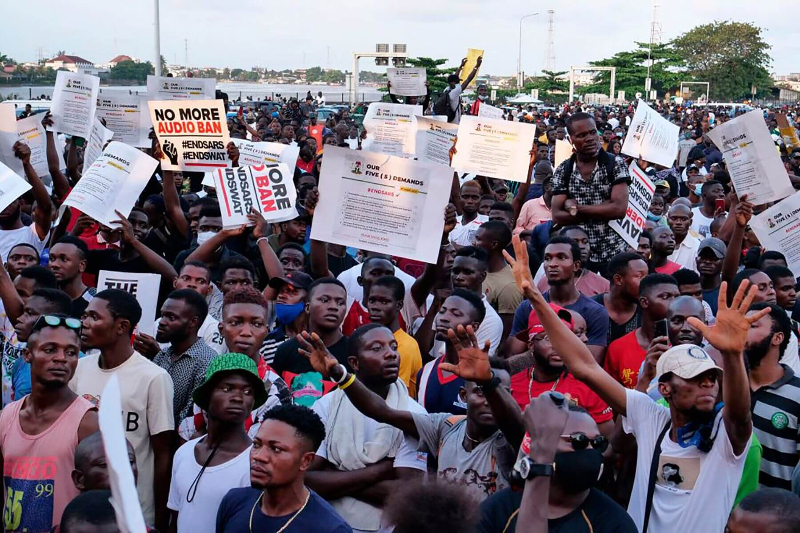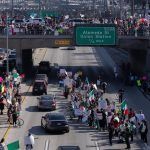
Deadly Nigeria protests over cost of living and ‘bad governance’ continue
Nigerians are experiencing a serious economic crisis. The annual inflation has climbed up to 34.19% – its highest in almost 30 years. Food prices have risen even faster. In the commercial hub Lagos, yams are almost four times more expensive than last year.
Furious over the deepening economic hardship, scores of people across the country have been protesting since Thursday. Security forces have fired tear gas to break up the demonstrations. Rights groups said at least 13 people had been killed in three northern states.
Rights groups blame Nigeria security forces for 13 deaths
Protesters say they are demonstrating over food shortages and allegations of corruption and misgovernment. Photos circulating on social media highlight people holding placards carrying messages such as “End bad governance in Nigeria“.
Police said that more than 300 protesters had been arrested. There have also been reports of looting of government and public properties. Nigeria’s inspector general of police said late on Thursday that the military could be called in for assistance.
Nigeria is believed to have placed all police units on “red alert” and more measures could be implemented to restore order in the country. Rights groups have blamed security forces for the deaths of the 13 people in Niger State, Maiduguri and Kaduna, all in the north.
Related Posts
Nigerian protesters make multiple demands
On Thursday, Kaduna State police spokesperson Mansur Hassan said that the police had fired tear gas at the people demonstrating but had not used live ammunition. The number of protesters on the streets on Friday appeared smaller than the day before.
The Take It Back Movement is one of the groups that has called for 10 days of protest from Thursday. It demands the government of Nigeria to tackle the cost of living crisis and to also offer free education at all levels.
Some of the group’s more radical demands include scrapping Nigeria’s 1999 constitution, letting Nigerians living abroad cast their votes in elections and releasing the Biafran separatist leader Nnamdi Kanu from prison, reported BBC.



